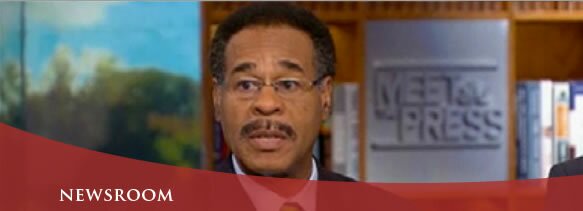Chairman Cleaver’s statement before the Forum on Excluded from Democracy: The Impact of Recent State Voting Law Changes
Good afternoon. Mr. Chairman, thank you for holding this important hearing today on one of the most important civil rights issues of our time. I am before you today to express the deep and abiding concerns the CBC has with this year’s onslaught of voter suppression laws, which have not so ironically arrived in time for the 2012 elections. Early voting days have been cut short, stiffer identification requirements have been implemented, and proof of citizenship is required—all of these policies are statistically proven to impact people of color disproportionately. While claims have been made that these laws are designed to eliminate voter fraud, Mr. Chairman, I firmly believe that these laws will only prevent our right to vote.
Forty years ago, the Congressional Black Caucus was founded “to positively influence the course of events pertinent to African Americans and others of similar experience and situation.” In the years since, we have earned the moniker “the Conscience of the Congress” because of our unyielding commitment to our communities and our country. We know that our mission is to help our country become a more perfect union. Forty years after our founding, we boast the largest membership roster in the history of the CBC—we are 43 members strong, representing a strong contingent of over 9,000 African American elected officials all over the country. I can say with absolute certainty that our numbers have grown in large part because of the enforcement of the Voting Rights Act and the other laws that ensure election protection and parity at the polls for America’s electorate. In 2009, one of our members, President Barack Obama, was sworn in as the first African American and 44thPresident of the United States of America.
Throughout the United States, dozens of new voting laws have been proposed. Given the lack of evidence of voter fraud in our nation, it is clear these laws do more to suppress the rights of voters than to safeguard our voting system. As elected officials–whether local, state, or federal–it is our obligation to not only encourage our constituents to vote, but to ensure the voting process is easy. We should not and cannot stand idly by as states enact laws that disproportionally harm people of color, youth, low income individuals, the elderly, and a host of others.
State governments across the country enacted an array of new laws making it harder to register or to vote. Some states require voters to show government-issued photo identification, often of a type that as many as one in ten voters do not have. Other states have cut back on early voting, a process disproportionately used by millions of disabled, elderly, and minority Americans. Two states–Iowa and Florida–reversed earlier reforms and once again disenfranchised millions who have past criminal convictions but are nonetheless taxpaying citizens.
As of today:
- Thirty four states have introduced laws that would require voters to present photo identification in order to vote.
- Fourteen states have enacted some type of restrictive voting law.
- Twelve states have introduced legislation that requires an individual to show proof of citizenship when registering to vote, and nine states have introduced bills to reduce early voting.
In my home state of Missouri, a voter identification amendment will be placed on the November 2012 ballot for voter approval, requiring Missourians to present photo ID when voting in person.
Already, stories have been circulating of lawful citizens being turned away from the polls because of these new, overly restrictive laws.
